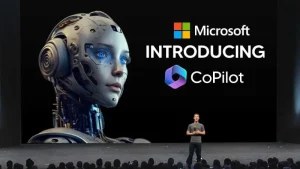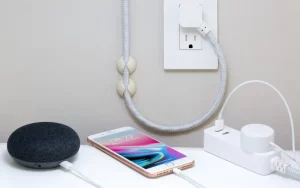HughesNet Joins FCC Program To Deliver Rural Income To Low Income Homes
7 min read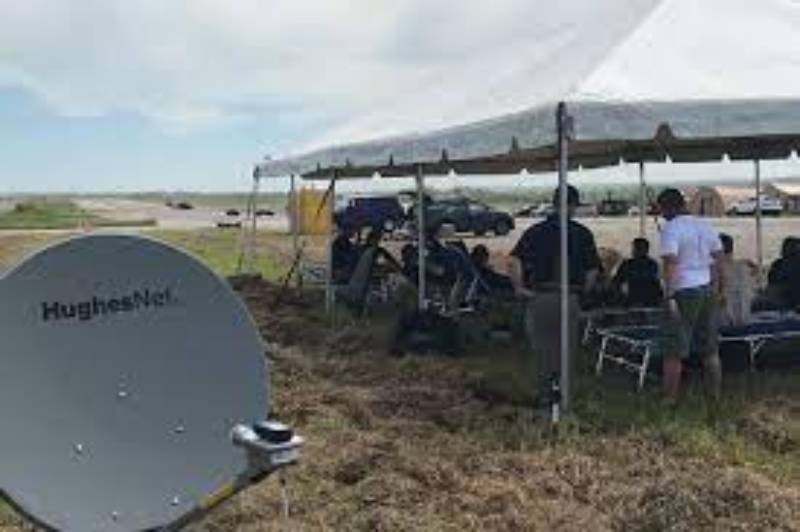
HughesNet is the latest Internet service provider to participate in the Emergency Broadband Benefit program. The EBB is a direct response to access issues emphasized during Covid lockdowns, and it provides an ongoing Internet service discount to low-income families—at least until funds run out.
The Emergency Broadband Benefit (EBB) program is a temporary federal benefit that helps eligible households afford the cost of internet service during the COVID-19 pandemic. The EBB program provides a discount of up to $50 per month towards broadband service for eligible households and up to $75 per month for households on Tribal lands. It also provides a one-time discount of up to $100 to purchase a laptop, desktop computer, or tablet from participating providers if the household contributes more than $10 and less than $50 towards the purchase price.
HughesNet is a provider of satellite internet service in the United States and is owned by Hughes Communications, Inc. It appears that HughesNet is participating in the EBB program, which means that eligible households in areas served by HughesNet can receive a discount on their internet service through the program.
Table of Contents
Emergency Broadband Benefit
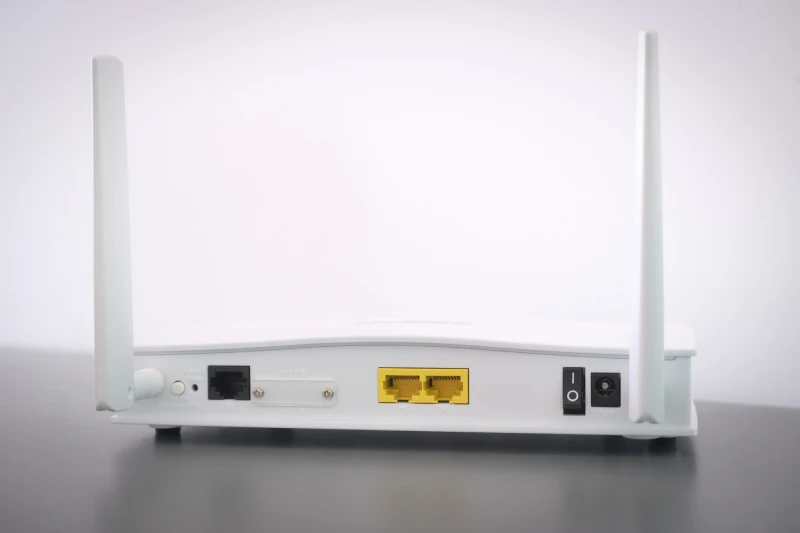
Internet service affordability and availability issues have been present in the U.S. long before the pandemic. But it was the lockdowns that really shined a light on the problem. Millions of Americans had to work and attend school from home but lacked the reliable Internet to do it. The EBB is the initial albeit temporary response from the government. The FCC program was seeded with $3.2 billion. Anyone who is eligible can get a $50 discount on their Internet bill each month. Eligible citizens also have access to a one-time $100 discount for a laptop, tablet, and so forth. The program will end as soon as the government declares the pandemic no longer a national emergency or when the funding dries up.
Eligibility for the EBB program is based on several factors, including:
- Household income: To be eligible, the household’s income must be at or below 135% of the Federal Poverty Guidelines.
- Participation in certain government assistance programs: Eligible households may include those that participate in certain government assistance programs, such as the National School Lunch Program, SNAP, Medicaid, and others.
- Loss of income due to the COVID-19 pandemic: Households that have experienced a loss of income due to the pandemic may also be eligible for the EBB program.
To apply for the EBB program, households must first determine if they are eligible. Information about eligibility and the application process can be found on the FCC’s website or by contacting a participating internet service provider.
HughesNet
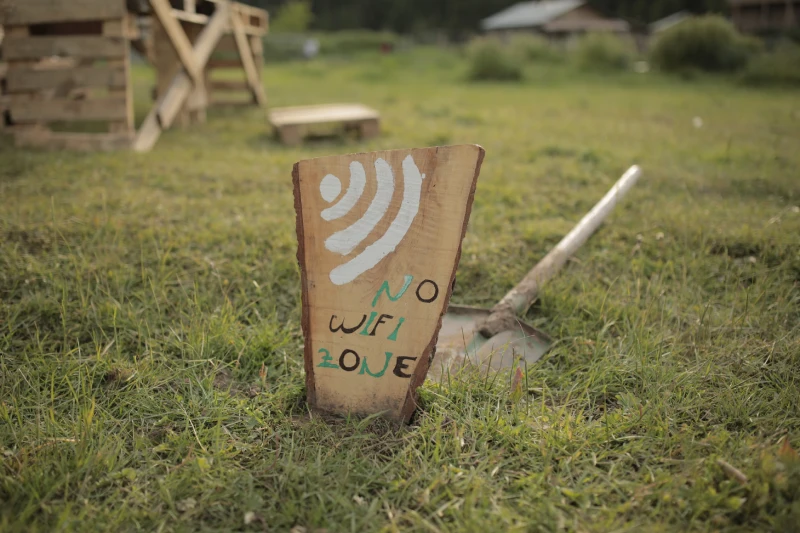
Hughes Network Systems is owned and operated by EchoStar, a global satellite communications company. HNS provides a wide range of communications services, but perhaps none is more recognizable than HughesNet. More than 1.5 million Americans get their broadband Internet service through this offering, and it is important to note that many of those customers would be unable to get Internet access otherwise.
HughesNet has been vital to extending Internet coverage to rural America. HughesNet does have a negative reputation for the speeds it delivers, but this perception is outdated. The current service offered by HughesNet is in line with the FCC benchmark for broadband: 25 Mbps down and 3 Mbps up. There are still issues, however, such as downtime due to inclement weather.
HughesNet is a provider of satellite internet service in the United States and is owned by Hughes Communications, Inc. HughesNet uses satellite technology to deliver high-speed internet to customers in areas where other types of internet service are not available or are not reliable. HughesNet offers a range of internet plans with different speeds and data allowances to suit the needs of different customers.
One of the advantages of HughesNet is that it can provide internet service to customers in remote or rural areas where other types of internet service are not available. However, satellite internet service can be more expensive and may have certain limitations compared to other types of internet service, such as cable or fiber optic.
HughesNet is participating in the Emergency Broadband Benefit (EBB) program, which provides a discount on internet service to eligible households during the COVID-19 pandemic. If you are interested in HughesNet service, you can check availability and pricing for your area on the HughesNet website or by contacting a HughesNet representative.
Getting Access to Rural America
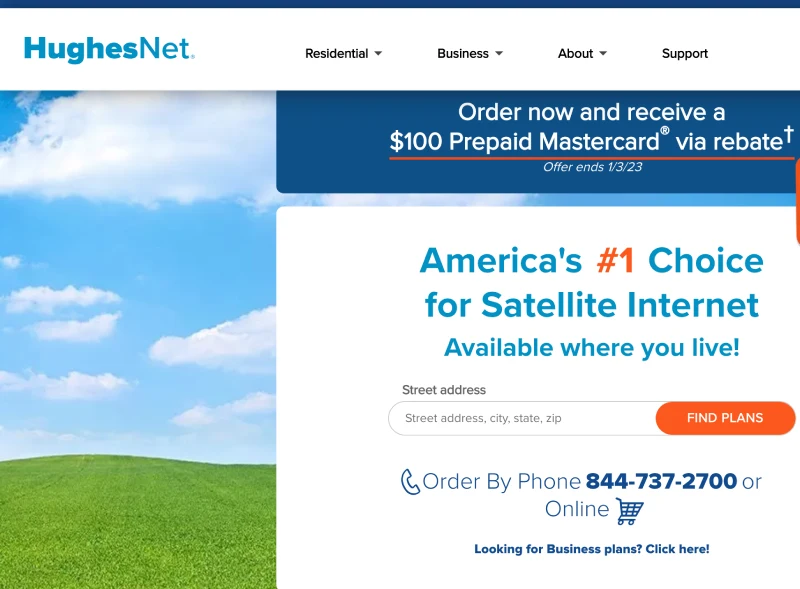
The government has been working on and off to get better Internet coverage to rural America for more than a decade now. The process is slow going. When it comes to fiber optic, cable and DSL, the process is time-consuming and expensive. The ISPs do not have much natural motivation. Funding would help, but prior to the pandemic, there was resistance to pay ISPs as much as they would need. Perhaps that is changing now. In the meantime, an ISP like HughesNet has been invaluable. Fixed wireless is a relatively new option that has made a difference as well. Municipal ISPs and private-public partnerships are also becoming more prevalent and have often provided the best Internet service to rural America.
There are several ways to get access to internet service in rural areas of the United States:
- Satellite internet service: Companies like HughesNet and Viasat offer satellite internet service, which can be a good option for customers in remote or rural areas where other types of internet service are not available. Satellite internet uses a satellite to transmit data back and forth between the customer’s location and the internet, so it is not limited by the availability of traditional infrastructures like cables or fiber optic lines. However, satellite internet can be more expensive and may have certain limitations compared to other types of internet service.
- Fixed wireless internet: Fixed wireless internet uses wireless technology to transmit data between a customer’s location and a nearby tower or base station. It can be a good option for customers in rural areas who are within range of a tower or base station but may not have access to other types of internet service.
- Broadband over power line (BPL): BPL uses the existing electrical power grid to transmit data and can be a good option for customers in rural areas that have access to the power grid but not to other types of internet service.
- Mobile broadband: Mobile broadband uses a wireless network to provide internet access and can be a good option for customers in rural areas who need internet access on the go. Mobile broadband is typically provided through a cell phone or mobile device, but it may also be available through other devices like hotspots or modems.
- Dial-up internet: Dial-up internet uses a telephone line to connect to the internet and can be a good option for customers in rural areas who do not have access to other types of internet service. Dial-up internet is typically slower than other types of internet service and may not be suitable for certain types of online activities.
How to Participate
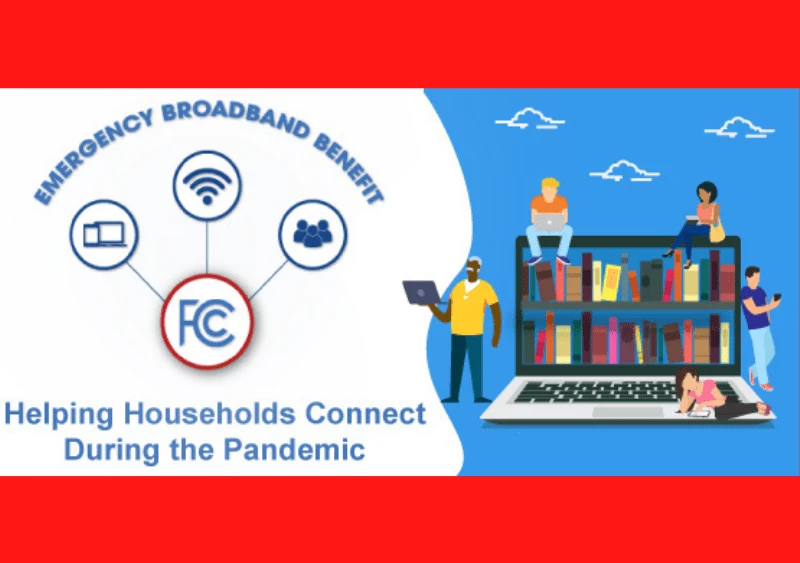
To participate in the Emergency Broadband Benefit (EBB) program, eligible households must first determine if they are eligible for the program. Eligibility is based on several factors, including household income, participation in certain government assistance programs, and loss of income due to the COVID-19 pandemic. Information about eligibility and the application process can be found on the FCC’s website or by contacting a participating internet service provider.
To apply for the EBB program, households must gather certain information and documents to verify their eligibility. This may include proof of income, participation in a government assistance program, or a statement attesting to the loss of income due to the pandemic. Households may also need to provide information about the internet service providers that serve their area and the internet plans that are available.
Once the household has gathered the necessary information and documents, they can apply for the EBB program online or by contacting a participating internet service provider. The provider will review the application and, if approved, will provide the household with a discount on their internet service. The household will need to reapply for the benefit each month to continue receiving the discount.
What About Starlink?

Starlink is a satellite internet service provided by SpaceX, a private company that designs, manufactures, and launches advanced rockets and spacecraft. Starlink is designed to provide high-speed, low-latency internet service to customers around the world, including those in rural and underserved areas.
Starlink is currently in the and is not yet widely available to the public. However, SpaceX has been steadily expanding the number of users in the beta test and plans to roll out the service more widely in the future.
Starlink is not currently participating in the Emergency Broadband Benefit (EBB) program, which is a temporary federal program established by the Federal Communications Commission (FCC) to help eligible households afford the cost of internet service during the COVID-19 pandemic.
If you are interested in the Starlink service, you can check availability and sign up to receive updates on the Starlink website.

